Source: SenseAI

Image Source: Generated by Wujie AI
Enabling agents to become colleagues within the company, or even building a team. Recently, a startup company from Australia, Relevance AI, completed a $10 million Series A financing round, helping companies build multi-agent AI teams with low code. It is worth mentioning that in the past three months, about 6,000 companies have registered to use Relevance AI and have run over 250,000 tasks, including answering customer inquiries, managing external sales, and conducting market research.
For early-stage AI Agent products, the key is to ensure the accuracy and predictability of the output results, which usually depends on standard operating procedures (SOP). However, faced with the increasing complexity of tasks, the limitations of SOP are evident and cannot cope with more advanced complex tasks. Therefore, the company plans to launch a multi-agent system, indicating that the demand for solving complex tasks increasingly relies on the in-depth exploration and experimentation of multi-agent structures. The main challenge faced by such AI Agent company products is how to maintain output accuracy while enabling multiple agents to flexibly deal with increasingly complex scenario tasks.
The pursuit of fully automated workflows is not the goal, mainly because the current capabilities of large models are not perfect and cannot accurately complete work tasks with high probability. Even if large models reach the level of general artificial intelligence (AGI), relying entirely on large models for all task decisions is still not ideal. Tasks usually require real-time feedback and continuous iteration from humans, rather than simple assembly line operations.
AI Native Product Analysis
Relevance AI

1. Product: Relevance AI
2. Founding Time: 2020
3. Team: Daniel Vassilev, Jacky Koh, Daniel Palmer
4. Product Introduction: Relevance AI is a platform that allows users to:
- Train agents using natural language to make them your colleagues
- Use a no-code builder to transform professional knowledge into tools
- Connect with other systems
- Coordinate and delegate among many agents
- Monitor and manage task outputs
5. Financing Situation:
- December 2021, seed round financing of 3 million Australian dollars
- December 2023, Series A financing of 15 million Australian dollars
01 Vision and Mission
Many companies have begun using generative AI tools, such as OpenAI's ChatGPT, which have been proven to improve employee performance by up to 40% compared to workers who do not use these tools. However, only enterprises with large engineering teams can build their own AI workforce. Faced with this challenge, the Australian startup Relevance AI has proposed a solution aimed at helping companies of all sizes build custom AI agents through its SaaS-based low-code platform to maximize productivity for any use case or function.
Our mission is to limit teams only by their ideas, not their scale - from seasoned industry players to ambitious newcomers. We eliminate complexity and enable AI agents to work autonomously, completing detailed workflows or complex tasks with the accuracy and predictability that companies can rely on.
——Daniel Vassilev: Co-founder of Relevance AI
When explaining the company's mission, Daniel Vassilev, co-founder of Relevance AI, emphasized, "We want to limit teams only by their ideas, not their scale, whether they are industry veterans or emerging challengers." He further pointed out that the company is committed to simplifying technical challenges, enabling AI agents to work independently, accurately, and predictably complete complex workflows and tasks.
The realization of this vision has benefited from the recent Series A financing, with Relevance AI raising significant funds. These funds will be primarily used to further develop its low-code platform, enabling enterprises to build and deploy custom AI agents to automate repetitive tasks.
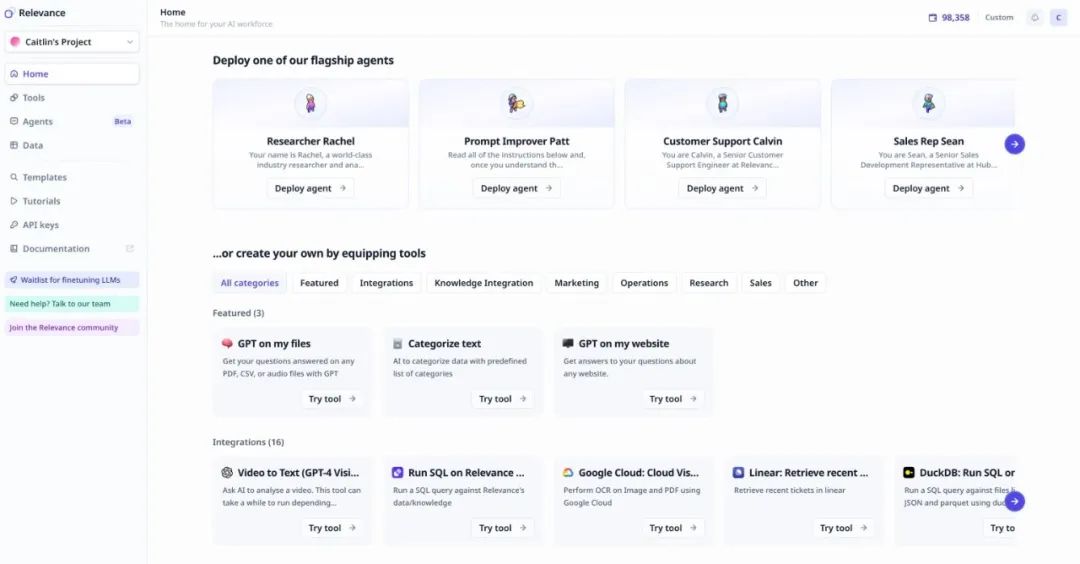
In the past three months, about 6,000 companies have registered to use Relevance AI and have run over 250,000 tasks, including answering customer inquiries, managing external sales, and conducting market research. These numbers not only demonstrate the powerful capabilities of the Relevance AI platform but also show the company's close cooperation with well-known enterprises in the technology, retail, and fast-moving consumer goods industries.
Vassilev further explained the company's market strategy: "We are initially focusing on areas such as sales and customer support teams, as these areas are text-based and have a significant return on investment (ROI)."
The AI tools and AI agents launched by Relevance AI are designed to meet the needs of these areas, allowing users to integrate these tools and agents into existing workflows to automate repetitive tasks and utilize AI agents to complete the entire process from research to marketing and sales.
Looking to the future, Relevance AI is confident in the application of AI technology across various industries. The company predicts, "By 2025, every team will employ at least one AI agent, and by 2030, there will be a complete AI team supporting them."
Vassilev emphasized Relevance AI's target customer base—companies and teams looking to automate repetitive work. Unlike traditional chat interfaces, Relevance AI focuses on task-based results and provides an experience of delegating work rather than just conversation. Additionally, he pointed out that many applications can benefit from Relevance AI's platform to automate the execution of repetitive tasks. For example, product managers can use AI agents to help with specification and research, and engineers can use AI for code reviews. The company is also exploring multimodal use cases involving images and audio.
Currently, the company has 19 employees and plans to increase the number of employees to about 30 by mid-2024, and plans to establish an office in San Francisco next year to expand its business in the United States.
02 Scenarios and Use Cases
Scenario 1: Personalized promotion in sales scenarios
Personalized outreach: The personalized function of AI greatly improves the efficiency of outreach activities. By achieving scalable personalization with one click, it not only increases response rates by up to 8 times but also significantly increases conversion rates. This method stands out in crowded inboxes, making it easier to attract the attention of potential customers, thereby enhancing the effectiveness of promotional activities.
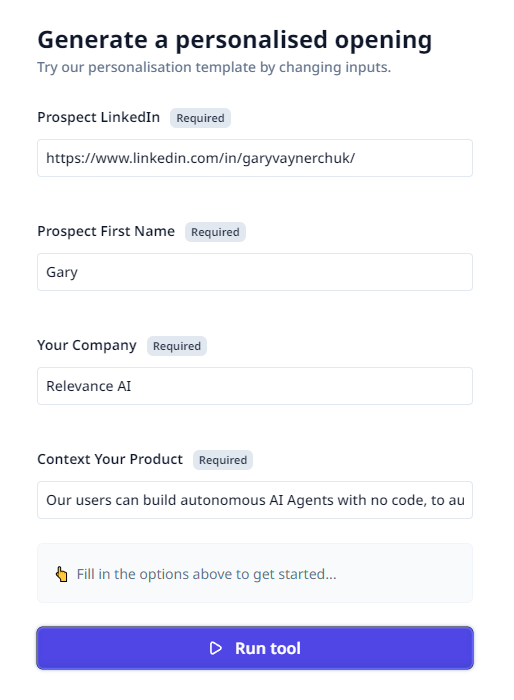
Social Media and Email Interaction: Utilizing AI-optimized personalized strategies can double the LinkedIn connection rate, increase email reply rates by 8 times, and reduce customer unsubscribe rates by 3 times. These significant improvements not only mean more efficient customer contact but also enhance the impact of marketing.
Scalable Humanized and Personalized Data Automation: AI intelligently identifies and extracts key details, including data from unique sources such as LinkedIn, documents, websites, Google, and news, going beyond traditional {position}, {location}, and {company} information, making the information more prominent.
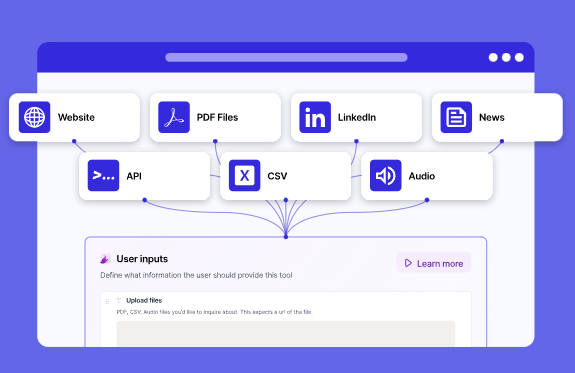
One-click Personalization of Thousands of Messages: Say goodbye to tedious single outreach processes, AI personalization technology can process thousands of messages with one click, achieving broad audience connection while maintaining high-quality personalized information.
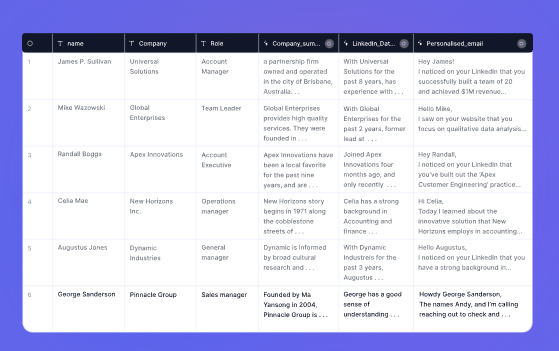
Complete Control of Personalized Content: Users can fully customize every aspect of personalized content, from tone and style to the content itself, and can even string together multiple prompts, using the latest AI models, surpassing the limitations of OpenAI.
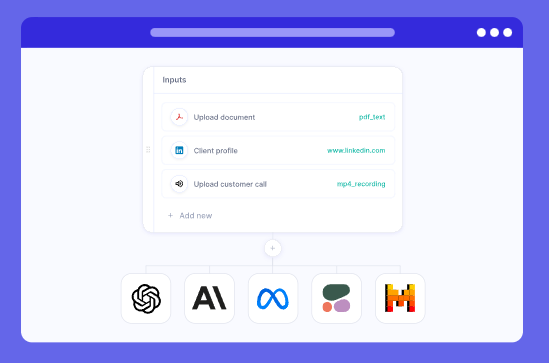
Integration with Sales Tools: This AI personalization technology can seamlessly integrate into existing sales tool stacks, such as sales intelligence, prospect databases, LinkedIn automation, and email automation. This integration not only improves efficiency but also ensures compatibility with existing sales processes, providing strong support for sales teams.
Scenario 2: Customer Experience in Customer Service Scenarios
The introduction of Relevance AI, especially in the acquisition of actionable insights, marks a shift in extracting information from customer feedback. Traditional methods are often slow, manual, costly, and biased. Relevance AI, on the other hand, provides a fast, automated, cost-effective solution that can process verbatim customer feedback from any source, providing scalable actionable insights. This shift means that in comparison to the cumbersome manual analysis of open feedback, in-depth insights can now be obtained more easily.
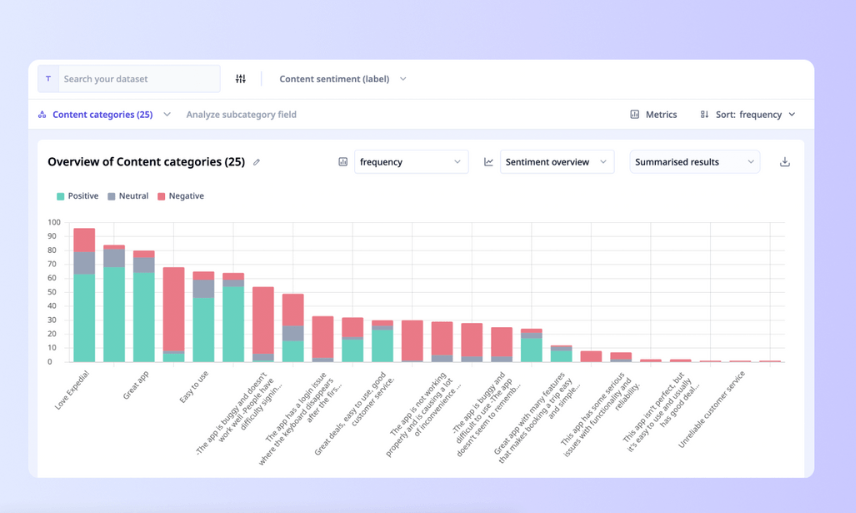
Relevance AI's no-code AI functionality enables actionable insights to be obtained in minutes, rather than weeks. Users can instantly categorize and analyze feedback, and compare emotions and sentiments.
In terms of automated feedback analysis:
Insightful AI Analysis: AI understands the meaning of the text, can find connections between different contexts, avoiding the limitations of traditional keyword matching and manual business rules. It can generate AI summaries from all feedback and conduct in-depth analysis through semantic search and filters.
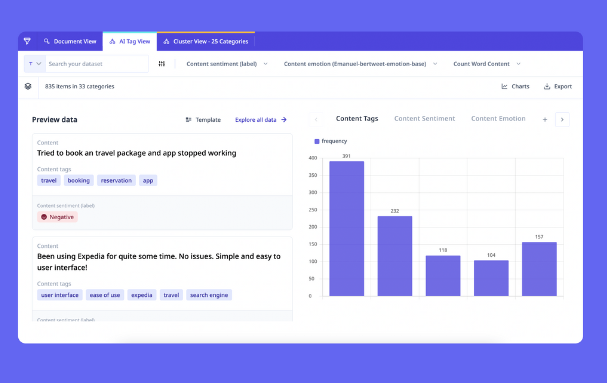
No Training or Labeling Required: Users can achieve 80% value from zero in minutes, thanks to pre-trained, cutting-edge AI models, saving time and being easy to operate.
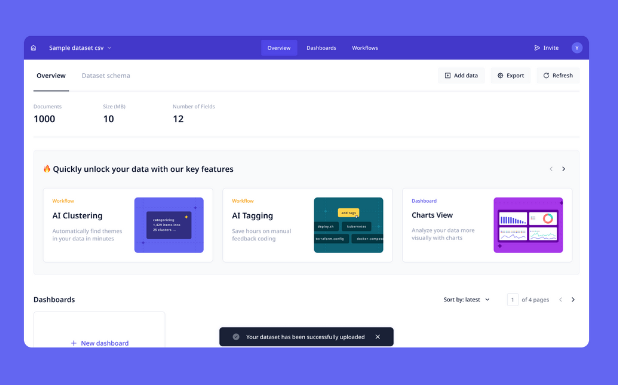
End-to-End No-Code Platform: Relevance AI supports dragging and dropping any text or audio data from multiple sources, or establishing connections through pre-built integrations. It can handle data, build customizable charts, reports, and dashboards, support uploading and analyzing any unstructured or structured data, and share dashboards or export results.
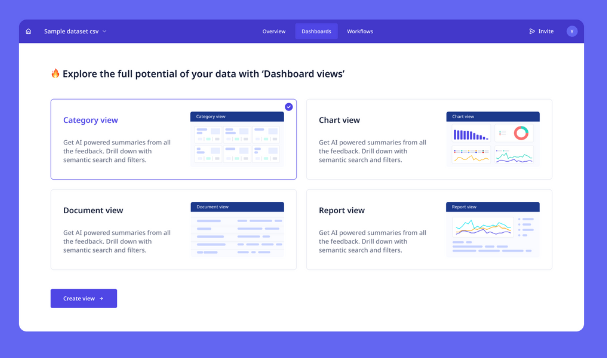
Relevance AI's powerful features not only include data analysis but also help users clean data, write complex queries, run models, and create beautiful dashboards and applications. This includes semantic search, AI tag automation, automatic classification, AI assistant "Ask Relevance" for summarizing insights, intelligent rule combinations, sentiment analysis, and image search.
Additionally, the seamless integration of Relevance AI with key data tools significantly enhances its usability and functionality. Its integration with platforms such as Qualtrics, Q Software, Survey Monkey, Medallia, SPSS, and Kapiche provides a range of solutions from customer feedback to data analysis.
03 Advantages Compared to OpenAI API
Seamless Transition from Single Prompt to LLM Chain
Relevance AI enables users to seamlessly transition from a single prompt to more complex LLM chains to address advanced use cases. Users can add additional transformations, such as API requests and JS code execution, making the AI chain more powerful and diverse. Starting from simple prompts, gradually building complex models to meet specific needs. In contrast, integrating advanced use cases with OpenAI API is more challenging and requires more development time.
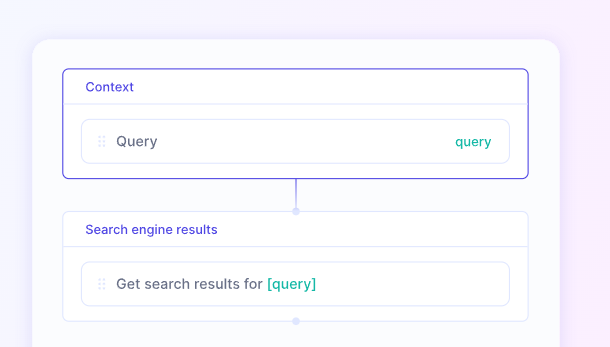
Enhanced Monitoring and Cost Tracking
Relevance AI provides superior monitoring and cost tracking capabilities, allowing users to easily grasp the usage and costs of the AI chain, ensuring optimized performance within budget. In contrast, achieving the same level of insight in OpenAI API requires reliance on multiple tools.
Simplified Collaboration and Sharing
Relevance AI simplifies collaboration and sharing of AI chains, promoting teamwork. Teams can create and deploy more effective prompts and models together, ensuring business objectives are met and involving non-technical team members. For complex projects requiring the involvement of multiple team members, Relevance AI is a game-changing tool. In comparison, collaboration with OpenAI API currently relies on email, Slack, and screenshots.
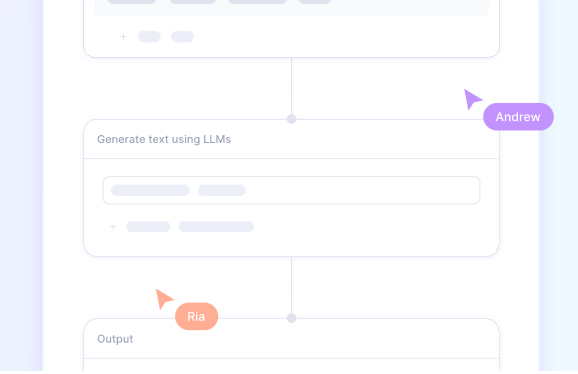
Intuitive Notebook Experience
Relevance AI's Notebook feature is designed specifically for quick experimentation with prompts. Testing different prompts and viewing real-time results helps users refine models and improve their accuracy. In contrast, experimenting with prompts in the OpenAI API is more time-consuming and provides a poorer user experience.
Better Quality Control
Relevance AI's quality control feature ensures that LLM outputs conform to specific patterns, match expected outputs, and avoid errors, ensuring accurate results from the model. In the OpenAI API, users need to build necessary checks themselves to ensure the accuracy of the output.
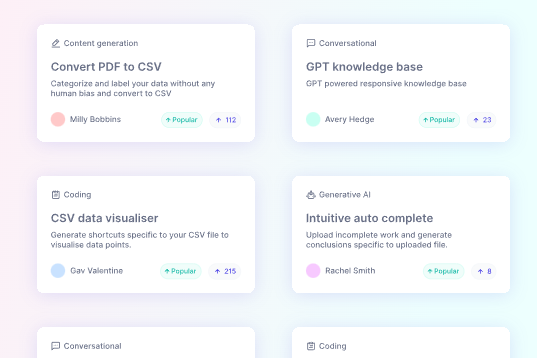
Simplified Version Control
Using Relevance AI's seamless version control feature, different versions of the AI chain can be easily managed, which is valuable when testing various models or prompt changes. OpenAI API leaves it to the users to build and track these changes, making version control more challenging.
Easy LLM Switching
Relevance AI allows users to easily switch between different LLMs, enabling experimentation to find the LLM most suitable for a specific use case. Not limited to a single LLM, this provides greater flexibility and control over the AI chain. In the OpenAI API, switching LLMs is more challenging, especially if relying on external tools to manage the models.
Reference Materials
https://relevanceai.com/
https://techcrunch.com/2023/12/11/relevance-ais-low-code-platform-enables-businesses-to-build-ai-teams/
免责声明:本文章仅代表作者个人观点,不代表本平台的立场和观点。本文章仅供信息分享,不构成对任何人的任何投资建议。用户与作者之间的任何争议,与本平台无关。如网页中刊载的文章或图片涉及侵权,请提供相关的权利证明和身份证明发送邮件到support@aicoin.com,本平台相关工作人员将会进行核查。




